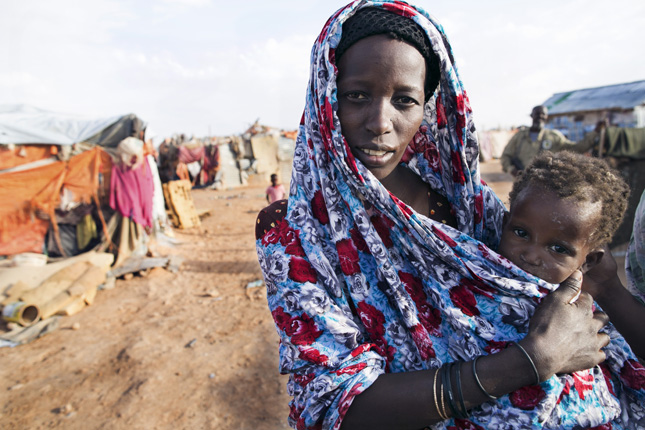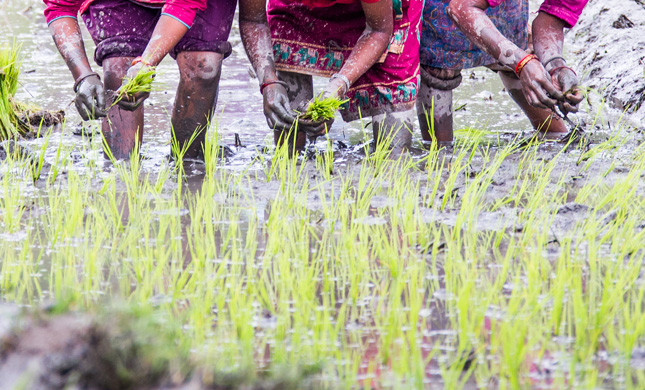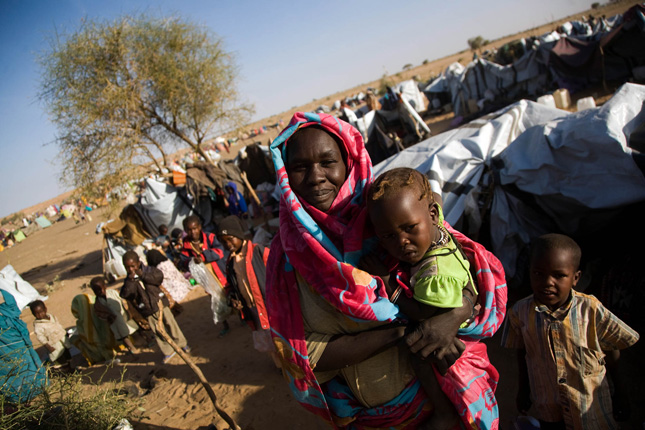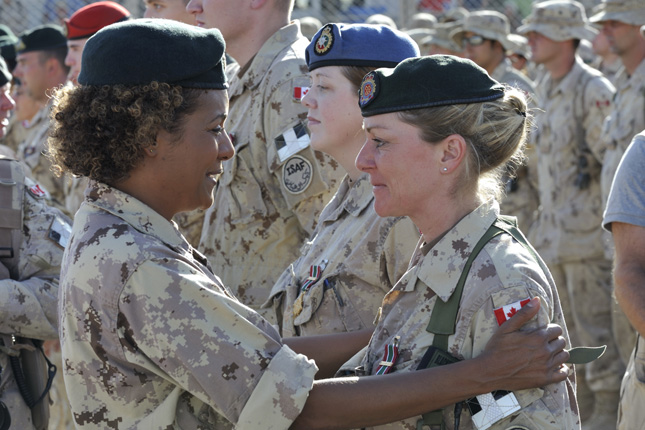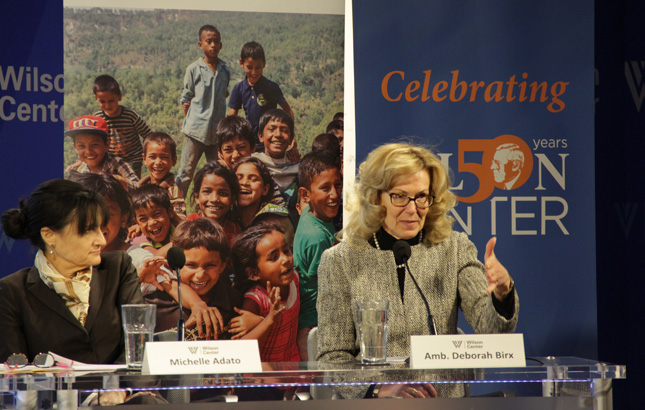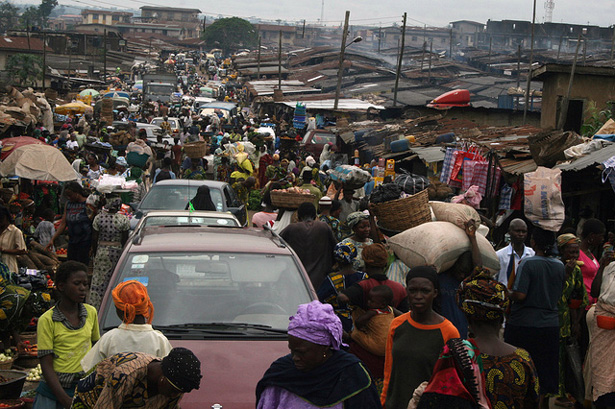-
Dr. Belen Garijo: “I Believe We Need To Do Better” For Caregivers Across The World
› “As many as 865 million of our mothers, daughters, [and] sisters across the globe are not reaching their full potential to contribute to their national economies,” said Dr. Belén Garijo, CEO for healthcare and executive board member of Merck KGaA, Darmstadt, Germany, at a recent Wilson Center event. The act of caregiving, and the physical and mental health impacts that accompany it, often disproportionately rest on the shoulders of society’s women.
“As many as 865 million of our mothers, daughters, [and] sisters across the globe are not reaching their full potential to contribute to their national economies,” said Dr. Belén Garijo, CEO for healthcare and executive board member of Merck KGaA, Darmstadt, Germany, at a recent Wilson Center event. The act of caregiving, and the physical and mental health impacts that accompany it, often disproportionately rest on the shoulders of society’s women. -
The Costs of Caring: Balancing the Burden of Caregiving for Women and Men
›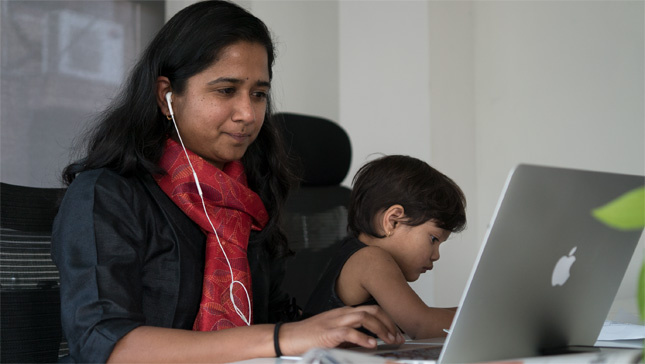
“The act of caregiving has unique impacts on women, in terms of economic, emotional, and physical well-being,” said Dr. Belén Garijo, the CEO for healthcare and executive board member of Merck KGaA, Darmstadt, Germany, at a recent Wilson Center event.
-
A More Just Migration: Empowering Women on the Front Lines of Climate Displacement
›
“It is often expected that women care more, and therefore women are going to volunteer, and be the saviors” in times of crisis, said Eleanor Blomstrom, the Program Director and Head of Office for the Women’s Environment & Development Organization (WEDO), at a Wilson Center event on climate displacement and the changing role of women. A panel of experts discussed the impacts of climate change that not only force women to move, but also put them disproportionately at risk. By integrating gender dimensions of climate-related displacement into research, policy, and programs, we can gain a better understanding of the challenges that women face and support women’s efforts to be changemakers for their communities as they adapt to climate threats. “All issues are women’s issues,” said Blomstrom.
-
From Communities to Landscapes: Multi-Scale Approaches to Climate Adaptation in Nepal
›
“Some people are more vulnerable than others” to climate change, said Judy Oglethorpe, senior director of Multilateral Program Development of the World Wildlife Fund-US (WWF) at a recent event on climate change, biodiversity, and livelihoods. Oglethorpe is the chief of party for the Hariyo Ban (Green Forests) Program, which seeks to increase ecological and community resilience to climate change in two biodiverse landscapes in Nepal. Taking a “multi-scale approach let[s] us focus on the most vulnerable people,” said Oglethorpe, and “work at different scales and across different disciplines…to reduce people’s vulnerability.”
-
Women on the Front Lines of Change: Empowerment in the Face of Climate and Displacement
›
With a swiftly changing climate comes rapidly rising sea levels, more frequent storms, and rising inequality. Slow yet consistent events like sea-level rise, as well as extreme events like hurricanes and other climate disasters, can force women and families from their homes. As the climate continues to change, adaptation will become more difficult, spurring some to leave home in search of safer ground. In the face of climate-induced instability, women are not just on the frontline of impacts, but also at the forefront of solutions.
-
Women and War: Securing a More Peaceful Future
›
“Conflicts are 35 percent more likely to be resolved and remain peaceful for 15 years if women are involved,” said Carla Koppell, vice president of the Center for Applied Conflict Transformation at the United States Institute of Peace, at a recent Wilson Center event on the role of women in war, security, and peace.
-
U.S. Global AIDS Coordinator: DREAMS Program Reduced HIV/AIDS Among Adolescent Girls in Sub-Saharan Africa
›
“There is no healthcare delivery system for non-pregnant 15- to 24-year olds,” said the U.S. Global AIDS Coordinator, Ambassador Deborah Birx, at a recent Wilson Center event on efforts to reduce the prevalence of HIV/AIDS among adolescent girls in sub-Saharan Africa. In 2014, the U.S. President’s Emergency Plan for AIDS Relief (PEPFAR) established the DREAMS program, which aims to create “a health care system where young people interact in a proactive and positive way,” said Birx.
-
Story of the Decade: Population Dynamics (and Women and Water) Top List of Our Most Popular Posts
›
This One Goes to 11.
Eleven years ago this week, the New Security Beat began covering population, environment, and conflict connections. Today, our goal remains the same as in 2007: to provide insight on today’s new security threats and to share overlooked opportunities for cooperation. As we wrote then, “countries in crises often share the problems of rapid population growth and deteriorating environmental resources”: and unfortunately, the same trends continue undermine peace and deepen poverty. But we’ve also analyzed notable global efforts, including the Sustainable Development Goals and the growing resilience agenda, that offer hope for progress.
Showing posts from category gender.


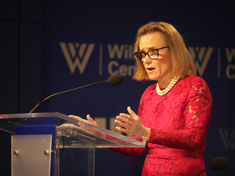 “As many as
“As many as 